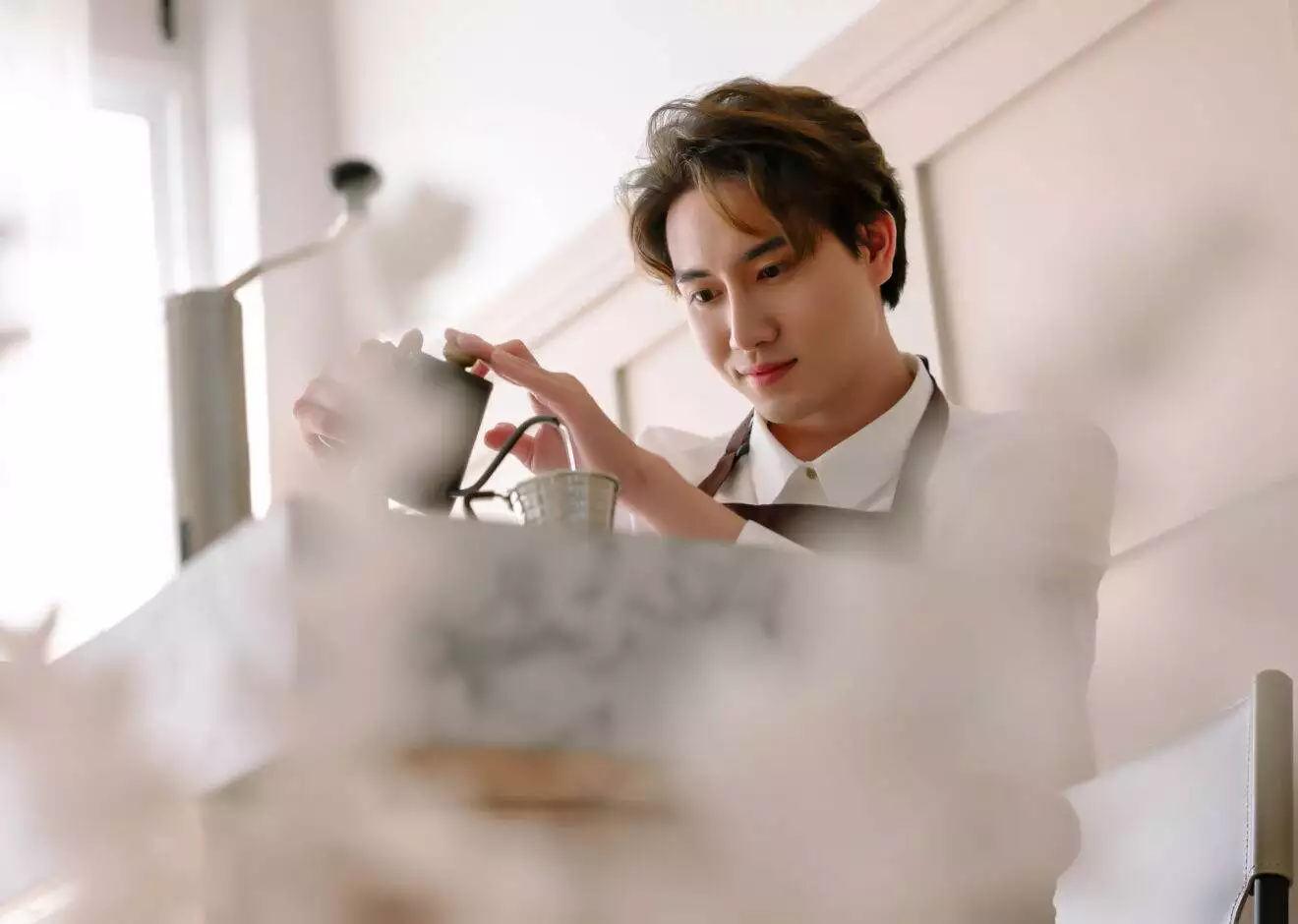The Evolution of Korean Specialty Coffee Culture | South Korean Coffee History Guide
- Lyndon Cecilio
- 11 December 2023


Coffee has become deeply ingrained in modern South Korean café culture. Today, thousands of coffee shops fuel an obsession with Korean specialty coffee across the capital city of Seoul and other urban hubs. This article will explore the rapid growth of Korea’s specialty coffee scene, the Korean coffee market, the Korean coffee industry, profiling key specialty coffee shops, and milestone moments that shaped the country’s vibrant coffee landscape.
The First Waves: Introducing Coffee to South Korea
The very first seeds of coffee culture were planted in Korea over 100 years ago under Japanese occupation. But coffee remained a rare novelty until instant coffee mixes entered the mass market after the Korean War, becoming an affordable drink for the war-weary population.
Throughout the 1960s to the 1990s, soluble “coffee mix” powder tins dominated grocery store shelves, and standardized instant brews filled cups at cafes across the country. Most establishments focused on volume and affordability, not quality similar to a level of international coffee or variety when it came to coffee. This set the stage for pioneering specialty coffee companies to disrupt the status quo.
Birth of Korean Specialty Coffee
In 1988, the first coffee shop serving specialty coffee in South Korea named First House opened in Seoul. The owners brought in higher-grade imported coffee beans to offer espresso beverages that exceeded the expectations of customers accustomed to mass-market instant mixes. This is where Koreans started the culture. The first love for Korean specialty coffee. First House also trained some of South Korea’s very first professional baristas, laying the foundations for the artisan coffee movement.
Throughout the 1990s and early 2000s, more Italian-style espresso cafés emerged, widening access to quality beans and espresso-based drinks. Customers welcomed these new “luxury” cafés offering respite from the affordability-first options that populated most of Seoul.
The Third Wave: Specialty Coffee Pioneers
The modern high-end, artisanal café culture familiar today emerged in South Korea during the mid-2000s “third wave” coffee movement centered on sourcing exceptional beans and bringing science into the brewing process. Pioneer specialty coffee brands like Coffee Libre and Anthracite Coffee introduced lighter single-origin roasts and manual drip coffee preparation methods to highlight distinct flavors tied to factors like origin, fair labor practices, farming technique, processing, and relationships with growers.
Instead of focusing solely on affordability and volume, these cafes took a cue from global third-wave trends, catering to customers interested in not just drinking, but appreciating coffee. Their unique sourcing, meticulous brewing techniques and cozy spaces made these hobbyist cafés destinations for South Korea’s blossoming coffee lover community.
Nationwide Specialty Coffee Fever
After years of cultivation by early movers, South Korea’s specialty coffee market reached an inflection point around 2013. Interest exploded as drinkers developed more discerning preferences and willingness to pay premium prices for exceptional coffee. Sensing new business potential, entrepreneurial new café owners entered competitive urban centers like Seoul, Busan, and Jeonju to meet swelling demand, excited by opportunities to innovate around sourcing, roasting, brewing, and even fusion with Korean flavors.
Light roast pour-over and cold drip coffee became symbols of this new movement. By 2019, South Korea ranked among fastest growing specialty coffee markets globally – 13% growth compared to the previous year according to World Coffee Portal. A vibrant and enthusiastic coffee community coalescing around this new shared interest accelerated further adoption.
Coffee Roasters – The Driving Force of South Korean Coffee Culture
No high-end coffee experience would be possible without the efforts of devoted coffee importers and roasters customizing beans to Korean preferences. As fascination grew for single origin beans and unconventional processing methods like the Anaerobic natural process producing fruit-forward coffees, Korean specialty coffee roasters filled supply chain gaps.
Major roasting companies like Terarosa, Owl Tail Roasters, and Café Dropt catalyzed niche demand by sourcing prized beans from ethical growers worldwide and producing custom roasts catering to increasingly sophisticated Korean palates. Their popular products highlighted exciting potential of locally curated beans.
Small-scale passion projects like the Fritz Coffee Company also produced creative blends fusing international beans and local ingredients like green tea, further popularizing specialty craft coffee. These roasters collectively laid essential foundations – bringing scarce resources to pioneering cafés dedicated to showcasing their high-quality green beans through deliberate brewing.
Baristas – Global Coffee Ambassadors
Baristas are the public face of the specialty coffee world, requiting new drinkers through education and unforgettable taste experiences. Since early third wave movers trained Korea’s first specialty baristas, passionate coffee professionals have actively strengthened local specialty coffee culture through global competitions, knowledge sharing events, and by operating independent cafés popularizing artisanal preparation techniques.
Barista championships organized by the Specialty Coffee Association and World Barista Championship increasingly attract Korean participants. Champion baristas and café owners like Sam Jeon of Cafe Onion help raise the profile of Korean specialty coffee overseas. In 2019, Cafe Onion head barista Lee Kang-baek took first place at the World Barista Championship. Through grassroots education and showcasing Korea’s depth of talent on the global stage, baristas drive continuous progress around coffee quality and creativity.
The Future: Increasing Sophistication, Both Coffee and Coffee Shops

Looking ahead, specialty coffee industry experts predict continued increasing market sophistication, customer education, and product diversity centered around sourcing ever more exceptional beans worldwide and catering to discerning Korean consumer preferences through advanced precision brewing techniques.
As pioneers open globally acclaimed cafés like Around Coffee and Magazine Coffee, raise standards around roasting and brewing excellence, and produce new visually stunning coffee-based crossover Korean drinks for adventurous younger generations, South Korea solidifies its place among leading global specialty coffee cultures. Still, early in its modern coffee journey, the full potential of further experimentation and innovation has yet to emerge across drinks, equipment, and experiences – ensuring an exciting road ahead for specialty coffee in South Korea.
Key Takeaways
- Korea’s modern specialty coffee culture has grown rapidly since pioneering brands disrupted the instant mix status quo in the late 20th century
- Passionate roasters, baristas, and café owners – attracted by new business opportunities – have invested in product and technique innovation to cater to swelling customer demand
- Youthful, internationally attuned coffee drinkers are developing a sophisticated appreciation for factors like sourcing, preparation, and ethics
- Industry veterans predict increasing innovation and South Korea advancing as a globally renowned specialty coffee culture
Experience Seoul Style Specialty Coffee in the Philippines
As this journey through South Korea’s vibrant coffee scene shows, a sophisticated café culture can develop rapidly when discerning drinkers connect with passionate industry pioneers. Here in the Philippines, excited specialty coffee lovers and cafés owners now have more opportunities than ever as we, Soo Coffee, bridge these different parties to connect and cultivate relationships. Drop by, explore our Menu, and Connect with like-minded individuals at Soo Coffee today!






